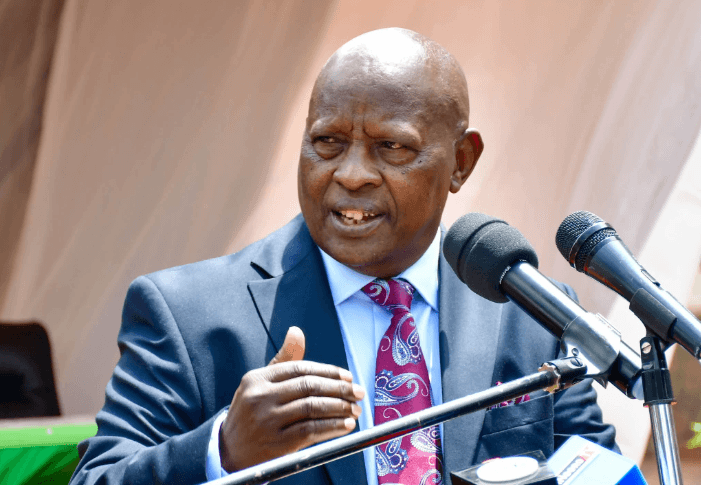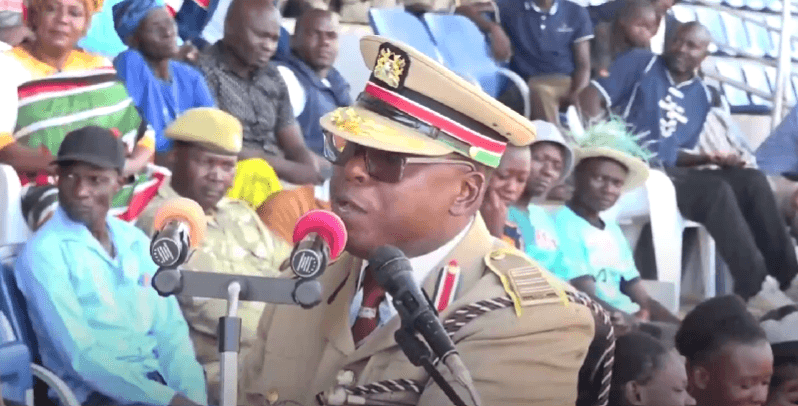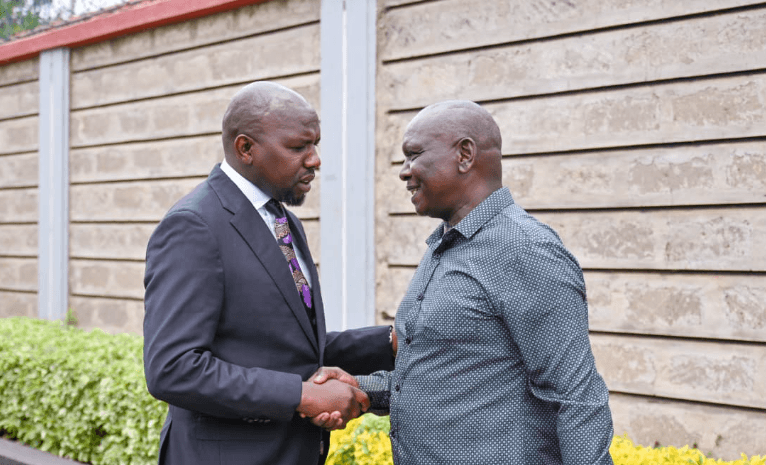Health officials have found traces of the poliovirus in a sewage sample collected from Nairobi.
The sample was collected on May 15 this year. It tested positive for the circulating vaccine-derived poliovirus type 2 (cVDPV2), at the Kenya Medical Research Institute laboratories.
No associated cases of paralysis have been detected, according to the report Kenya filed to the Global Polio Eradication Initiative.
The risk to the general public in Nairobi is considered low.
The GPEI said the virus found in the sewage was likely excreted by a person vaccinated with the oral polio vaccine.
In the last 12 months, Kenya has vaccinated millions of children in rapid campaigns using the oral polio vaccine, which contains a live but weakened virus.
The OPV is more effective than an injectable vaccine that contains killed viruses—used in most rich countries—because it stimulates long-lived immune responses in the intestines where polio replicates.
The problem is that these weakened viruses can be excreted live and become active again.
“The vaccine virus is also excreted in the stool, and in communities with low-quality sanitation, this means that it can be spread from person to person,” GPEI said in a statement.
In extremely rare cases, people infected with the excreted virus can develop paralysis if they were not vaccinated before.
This is the second case of vaccine-derived poliovirus reported in Kenya this year.
A stool sample collected on February 21 this year also tested positive for polio.
All these samples are tested at the Kemri laboratories, which are accredited by the GPEI.
Kenya is among the many countries that monitor sewage to predict potential outbreaks of polio.
The disease is highly infectious and largely affects children under five years of age, causing permanent paralysis in approximately one in every 200 infections.
It has no cure but can be prevented and eradicated through vaccination.
Eradicating it requires 100 per cent vaccine coverage, but the WHO estimates the vaccination rate in Kenya is about 91 per cent.
Some areas of the country, such as those near Somalia, have vaccination rates of only 77 per cent.
The Ministry of Health has not indicated any action regarding the two reported cases this year.
Eight cases of vaccine-derived polio virus were confirmed in Kenya last year.
“Genetic sequencing confirms the isolated cVDPV2 were linked to cVDPV2 currently circulating in Banadir, Somalia,” GPEI said last year.
After the eight cases last year, MoH conducted three rounds of vaccination.
In the first round, 1.9 million children were vaccinated in Kiambu, Kajiado, Garissa and Nairobi counties between August 24 and 28.
The second round took place in October in Mandera, Wajir, Tana River, Lamu, Kitui, Machakos, Kiambu, Kajiado, Nairobi and Garissa, reaching 3,119,158 children.
The third round was conducted in January 2024 in Mandera, Wajir and Garissa.
This round reached 755,011 children under the age of five and an additional 238,447 children aged between five and 15 years in Fafi and Dadaab subcounties and all refugee camps in Garissa.
The third drive was originally planned for November 2023 but was postponed due to heavy rains experienced in North Eastern Kenya.
The current cases may pose a challenge due to a shortage of polio vaccines in the country.
“A crisis looms in Hagadera at Dadaab refugee camp, with only 60 doses of Oral Polio Vaccine remaining,” the International Rescue Committee Kenya country director Mohamed El Montassir Hussein said on June 1 this year.
Last month, Medical Services Principal Secretary Harry Kimtai said the shortage was a result of Sh3.6 billion debt owed to suppliers.
“Currently, there are stockouts of key vaccines, with less than two months of stock available nationally for traditional vaccines such as the BCG Vaccine, Oral Polio Vaccine, and Measles Rubella Vaccine,” he said in a statement.
Treasury later released Sh1 billion, after which the Ministry of Health procured childhood vaccines worth Sh1.25 billion.
"We are pleased to announce the receipt of the following vaccines:1,209,500 doses of Measles Rubella vaccines, 3,032,000 doses of Oral Polio Vaccines (bOPV), 1,000,000 doses of Tetanus-Diphtheria vaccines and 2,120,000 doses BCG vaccines," Medical Services PS Harry Kimtai said last month.












